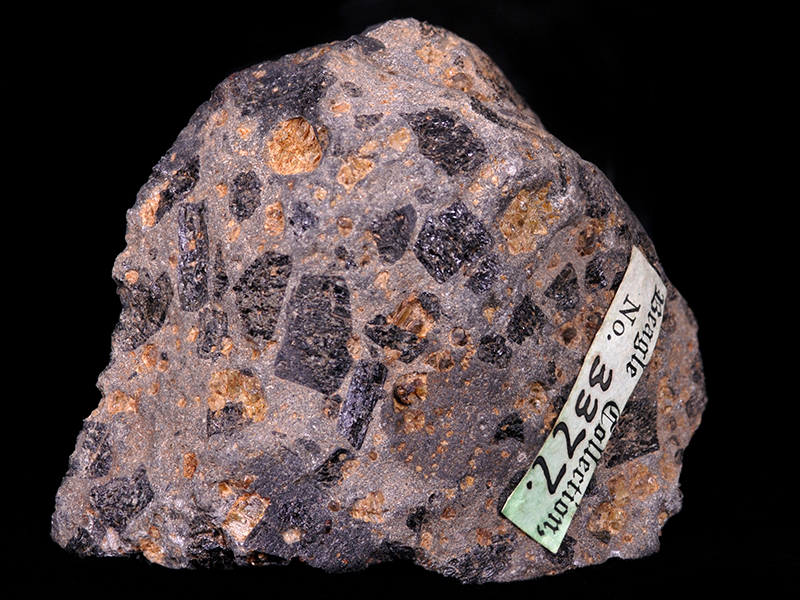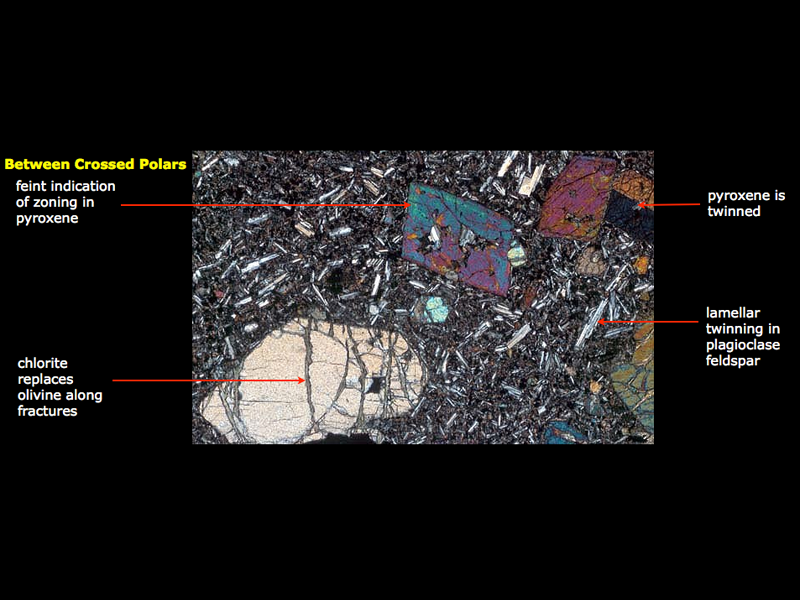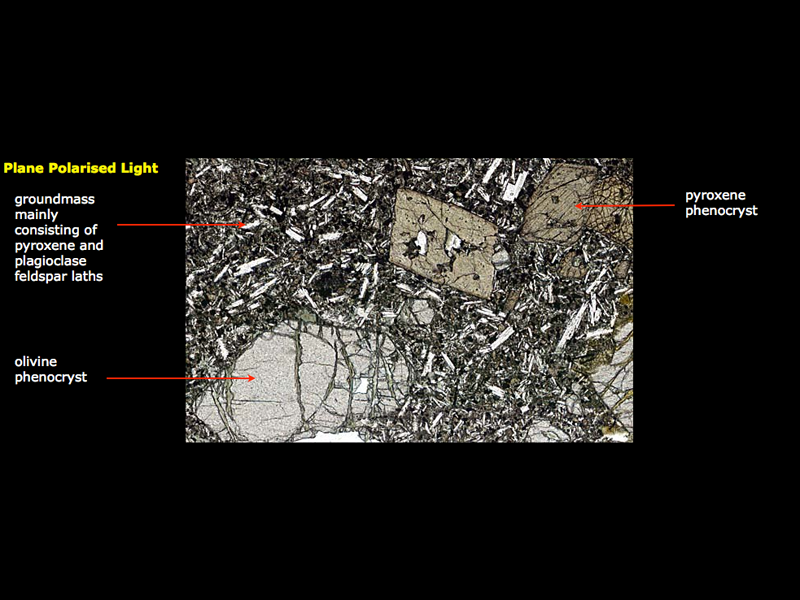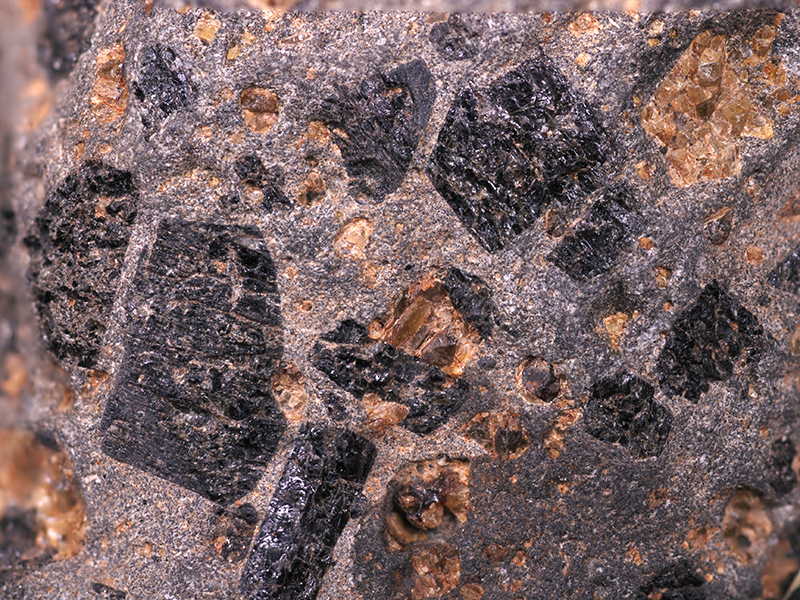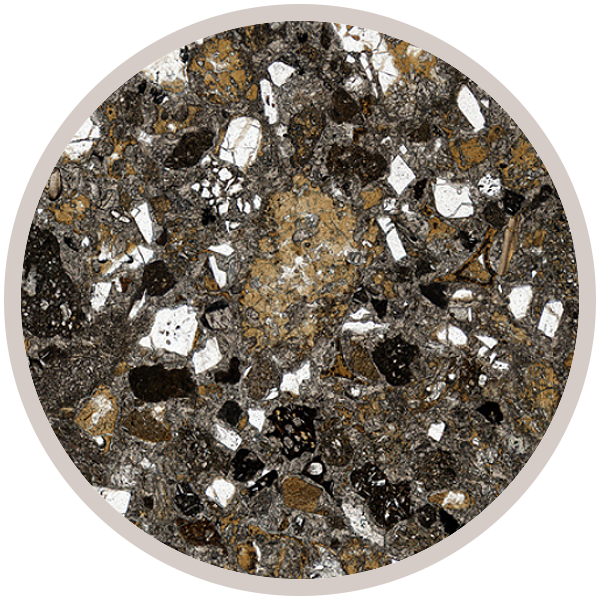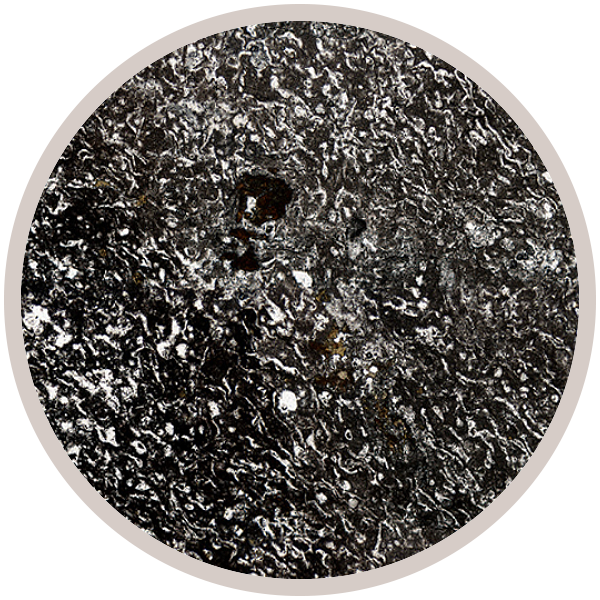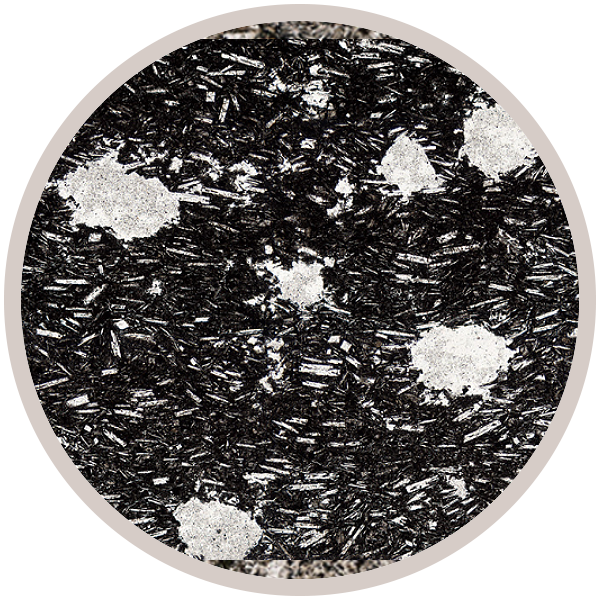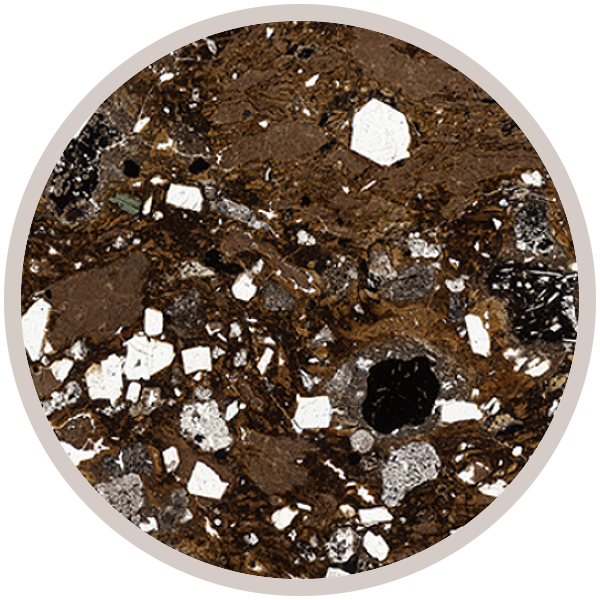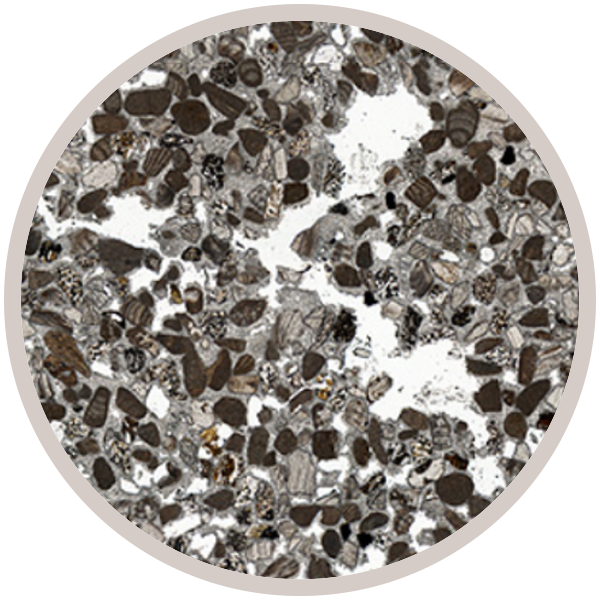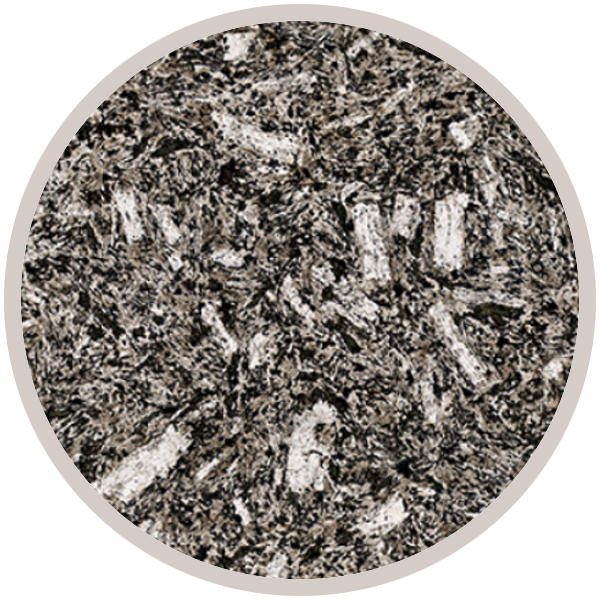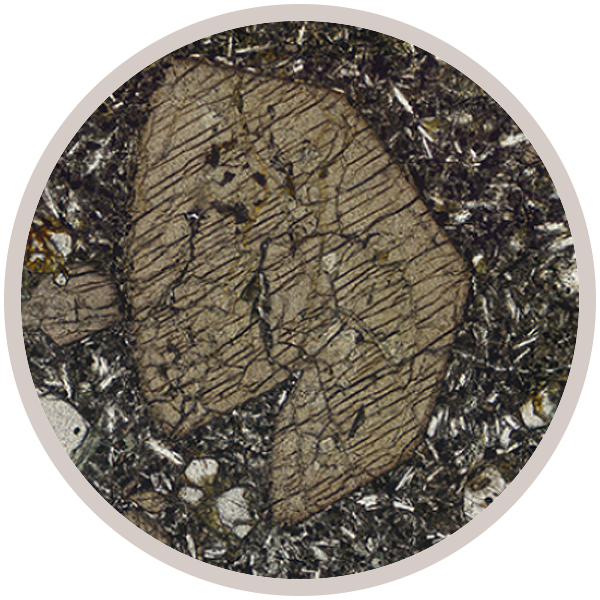
Fact sheet
Darwin wrote "From the Central Mountains. Common augitic? olivine lava (---- with large crystals of oliv)"
Porphyritic basalt containing large euhedral phenocrysts of olivine and pyroxene in a finely-crystalline groundmass of pyroxene, plagioclase feldspar and opaque iron oxides. Collected in Nov 1835.
This collection was a collaboration between The Open University and the Sedgwick Museum, created in 2009 to celebrate the bicentennial of the birth of Charles Darwin.
The Sedgwick Museum opened a new gallery, 'Darwin the Geologist', and created a museum-based virtual microscope to showcase rocks he collected during the Voyage of the Beagle. We enjoy this collection because Darwin did not always pick up a representative sample from the islands he visited; it's often the unusual rocks that caught his eye. Just explore the collection and you'll see what we mean.
Darwin collected some 2000 rock specimens on the voyage, under difficult conditions exacerbated by 'perpetual' seasickness. These specimens were gifted to the Sedgwick Museum after Darwin's death by his executors. Thin sections were made from these hand specimens in the early years of the Twentieth Century by Alfred Harker, a pioneer of thin section petrology. He curated a collection of 42,000 rock specimens, as well as numerous thin sections, from the 1880s up to his death in 1939: these specimens form the core of what is now known as the Harker Collection. Harker published 'Notes on the rocks of the "Beagle" Collection' in the Geological Magazine in 1907. He also made a handwritten copy of the catalogue (omitting the sedimentary rocks!); you can view the Contents list and a rationale for the catalogue on the Darwin Online site.
For those who have the opportunity, a visit to the museum is strongly recommended. See the Sedgwick Museum website for more information.
